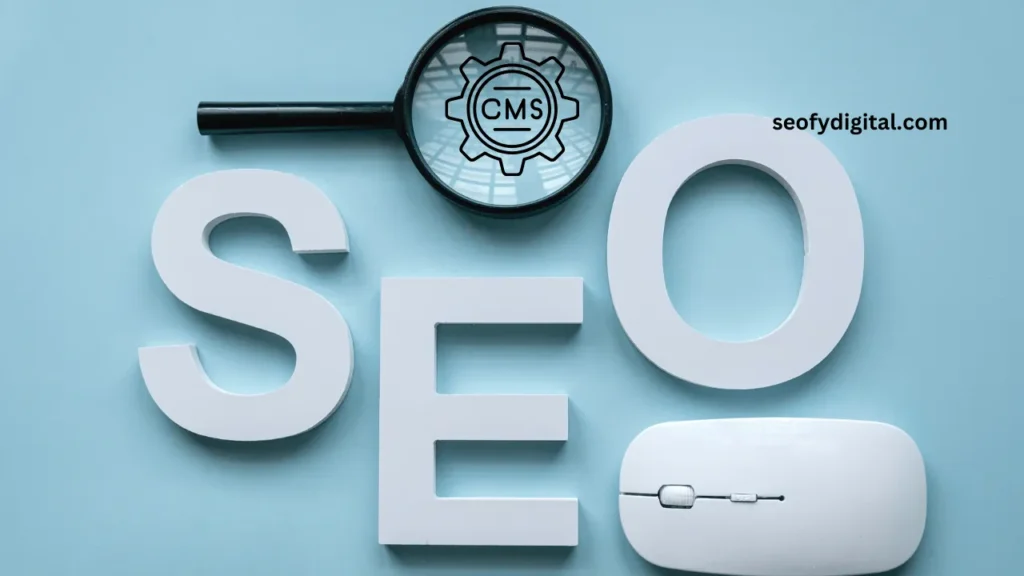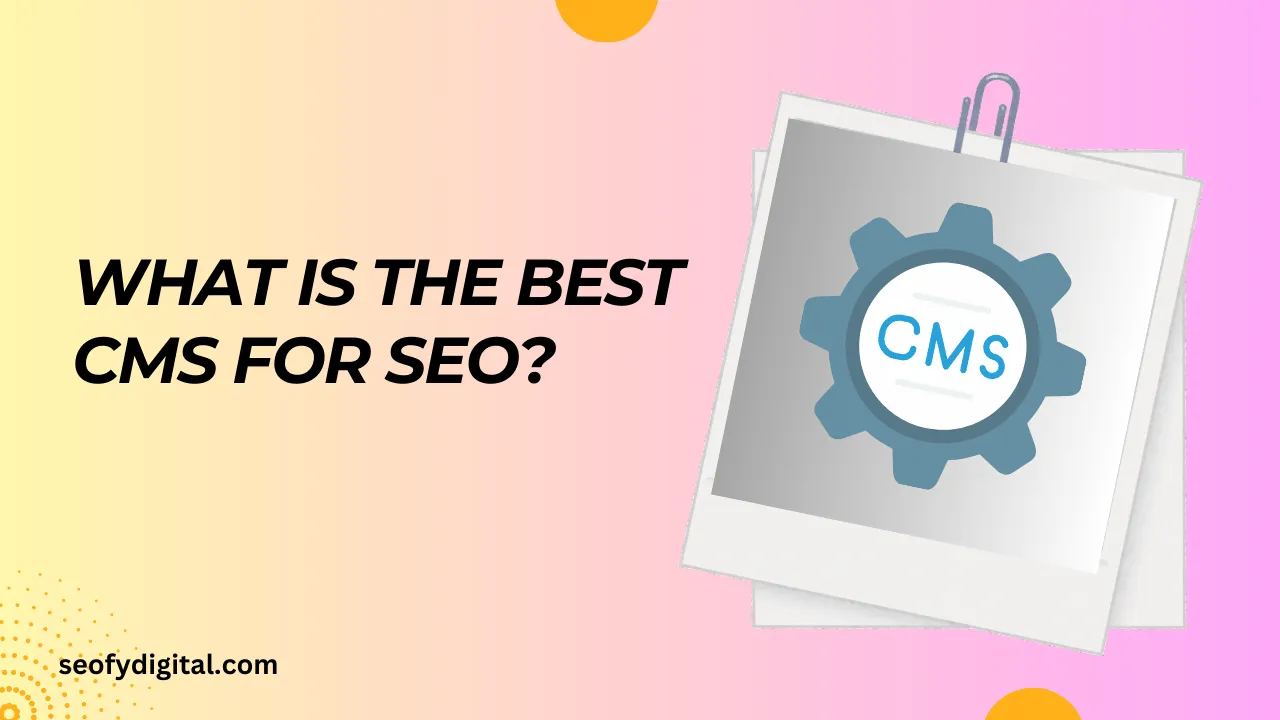In today’s digital world, a strong online presence is non-negotiable for any business or brand. At the heart of this visibility lies Search Engine Optimization (SEO), the crucial process that determines how easily potential customers can find your website.
But to optimize effectively, choosing the right Content Management System (CMS) is key. Not all CMS platforms are equal in their support for SEO, and picking the wrong one can hold back your site’s potential no matter how well-optimized your content is.
This post dives deep into the best CMS options for SEO in 2024, exploring not only which systems are most compatible with SEO but also what features make them stand out. From ease of use to powerful tools for creating content that ranks well, understanding these factors will empower you to make an informed choice.
With user-friendly tools and advanced SEO features, a good CMS can streamline optimization, letting you focus more on content and user engagement rather than technical hurdles.Whether you’re building a personal blog, an e-commerce site, or a corporate webpage, this guide will help you identify which CMS can best meet your SEO needs.
We’ll break down the top-performing platforms and highlight essential SEO features, so you can start building a website that not only looks good but also performs exceptionally well in search engine results.

Contents
Understanding SEO Basics
SEO, or Search Engine Optimization, is the art and science of enhancing a website’s visibility on search engines. The goal is to attract organic traffic by making the site more appealing to search algorithms.
- On-Page SEO: This includes elements you can directly control, such as title tags, meta descriptions, header tags, and optimized content. A CMS that allows easy customization of these features makes on-page SEO much simpler.
- Off-Page SEO: Refers to factors outside of the website, including backlinks from reputable sites and social media engagement. While a CMS has less direct impact here, choosing one that integrates well with social media can indirectly boost SEO.
- Technical SEO: This involves ensuring search engines can crawl and index the site efficiently. XML sitemaps, robots.txt files, and schema markup all contribute to making a website technically sound, and a good CMS should support these elements seamlessly.
Key CMS Features for SEO
When selecting a CMS, focus on features that cater to SEO best practices. Here are five crucial attributes:
- User-Friendly URL Structure: Clean and SEO-friendly URLs help search engines understand the content of each page. The CMS should allow full control over URL customization.
- Mobile-Friendliness: With Google’s mobile-first indexing, a responsive design is no longer optional. Look for a CMS that prioritizes mobile optimization.
- Fast Loading Speeds: Site speed affects both SEO and user experience. Choose a CMS that minimizes load times and supports caching and image compression.
- Technical SEO Tools: Essential for optimizing every page, the CMS should facilitate XML sitemap generation, robots.txt customization, and canonical URL creation.
- Content Management and Optimization: Effective SEO depends on strong content. The CMS should support content creation, editing, and optimization tools like Yoast or built-in keyword analysis features.

Top CMS Options for SEO
There are several CMS platforms that excel at SEO. Here are the top contenders:
- WordPress: Widely regarded as the most SEO-friendly CMS, WordPress offers numerous plugins like Yoast SEO and All in One SEO Pack. It’s flexible, well-supported, and features SEO-focused themes. However, it can be complex for beginners.
- Drupal: Known for its high level of customization, Drupal is ideal for larger sites requiring more power. With robust SEO modules, it’s great for technical users but has a steep learning curve.
- Joomla: This platform strikes a balance between simplicity and flexibility. Joomla has decent SEO capabilities, but its out-of-the-box SEO isn’t as robust as WordPress.
- Wix: Best for small businesses needing a drag-and-drop editor, Wix offers simplicity but has limited customization options. It’s beginner-friendly but lacks advanced SEO tools.
- Squarespace: With beautiful templates and an easy interface, Squarespace is great for visually oriented websites. However, it’s less flexible for SEO, making it more suitable for those prioritizing design over extensive SEO control.
Choosing the Right CMS for Your Needs
Selecting a CMS involves considering more than just SEO:
- SEO Goals: Define your SEO priorities, such as traffic growth, lead generation, or online sales.
- Technical Expertise: Some CMS platforms are more complex than others. Assess whether your team’s skills match the CMS’s demands.
- Budget: Factor in the CMS cost, hosting, and any development expenses. WordPress, for example, can be affordable but may require paid plugins for advanced features.
- Future Growth: Your CMS should be scalable to meet future needs. A platform like Drupal, for instance, is excellent for complex, growing sites.
Best Practices for SEO with Your CMS
After choosing a CMS, here are tips to maximize its SEO potential:
- Optimize Content: Publish high-quality, keyword-rich content that provides value to your readers.
- Use SEO Plugins: CMS plugins can enhance SEO functionality, offering insights on keywords, metadata, and readability.
- Monitor and Analyze: Use Google Analytics and other tools to measure your website’s performance, identifying areas for improvement.
- Stay Updated: Regularly update your CMS and plugins to avoid security risks and ensure compatibility with SEO standards.
Conclusion
Choosing the right CMS is one of the most important decisions for your site’s SEO success. A CMS with robust SEO tools and user-friendly options will help you create a site that performs well in search engines and engages your audience.
By understanding each CMS’s strengths and limitations, you can match your goals with a platform that provides the right features. Start optimizing your website today and make sure it’s equipped to rank well, reach your target audience, and keep up with evolving SEO standards.
FAQs
1. What is the most SEO-friendly CMS?
WordPress is often considered the most SEO-friendly CMS due to its plugins and flexibility.
2. Is Wix good for SEO?
Wix is beginner-friendly but may lack advanced SEO features for larger sites.
3. Can I use multiple CMS platforms for SEO?
It’s usually best to choose one CMS to avoid complications with SEO.
4. Does a CMS affect my website’s loading speed?
Yes, some CMS platforms are faster than others, which can impact SEO.
5. Are plugins necessary for CMS SEO?
Plugins enhance SEO capabilities, especially for platforms like WordPress.
6. Is mobile optimization important in CMS selection?
Yes, Google’s mobile-first indexing makes it crucial for SEO.








